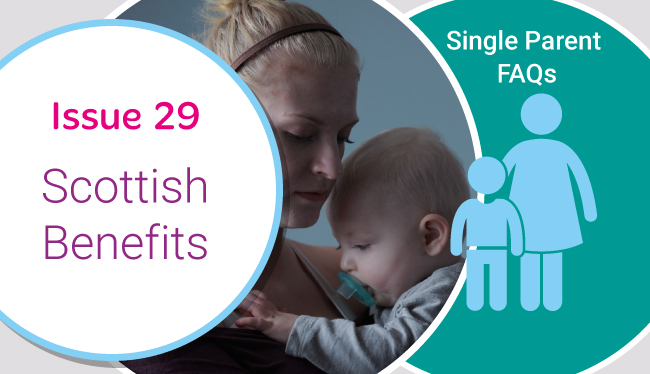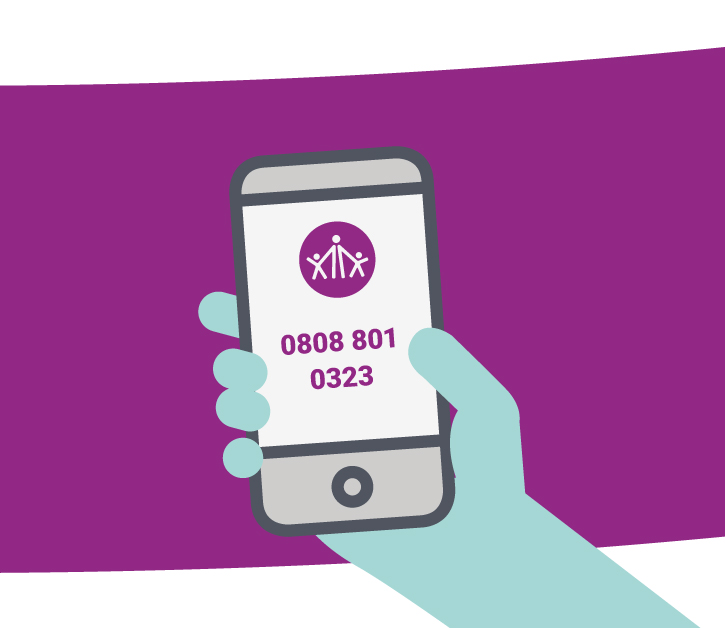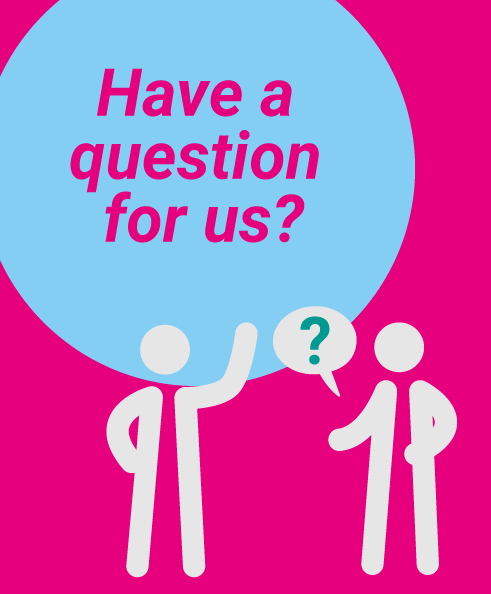Single Parent FAQs: Scottish Benefits – Issue 29

29/04/2024
Our advice and information team who work on our Lone Parent Helpline, webchat and Ask a Question feature, receive questions from single parents around Scotland every day.
The Scottish Government has introduced Scottish Social Security benefits and replaced, or amended, other UK benefits. Here are some of the questions we have received on our advice channels.

Take a look at the questions and answers
I am due my first baby and I wanted to know if there is anything I can claim to buy baby items, I don’t have anything because this is my first baby.
Depending on your circumstances you may be entitled to the Best Start Grant. This has replaced the Sure Start Maternity Grant which is no longer available in Scotland. Get in touch on our advice channels and we can calculate what benefits you can claim and when.
When does Social Security Scotland pay the Carers Supplement?
The next payment will be £288.60 and paid in June.
You’ll get this payment if you’re getting Carer Support Payment or Carer’s Allowance on 8 April 2024.
You’ll get the second payment of £288.60 in December if you’re getting Carer Support Payment or Carer’s Allowance on 7 October 2024.
If you’re due to get a payment, you’ll get a letter from Social Security Scotland before the payment is made with the exact date it should be paid on.
I have a daughter who has just turned 16 and still in school and my Scottish Child Payment has stopped, why is this?
The Scottish Child Payment stops when the young person reaches 16.
My daughter is my carer and is 16 and still at school is there anything she can claim for being my carer?
Your daughter may get a Young Carer Grant if they care for someone who is getting Personal Independence Payment daily living component, Disability Living Allowance or Child Disability Payment care component at middle or highest rate or Attendance Allowance.
Who can get a Young Carer Grant?
- You normally live in Scotland
- You are aged 16, 17 or 18
- You are not entitled to Carer’s Allowance on the day you claim
- You are caring for someone, or for more than one person, who has a disability or illness
- You are providing care for at least 16 hours a week on average
- No-one else has received a Young Carer Grant in respect of the person you care for in the last year.
Care means being involved in an activity to promote the physical, mental, or emotional wellbeing of the person, or people, you are caring for. If you care for more than one person, the number of hours you provide care can be added together. You must not be providing this care under a contract or voluntarily.
Young Carer Grant is a yearly payment of £383.75 for young carers in Scotland. More info and how to apply for Young Carer Grant
My daughter has sadly died, and I wanted to know if there is anything I can claim to help towards her funeral?
You may get Funeral Support Payment if the person who died lived in the UK and the funeral is taking, or has taken, place in the UK. You must also be getting certain benefits. Funeral Support Payment is money to help pay for the costs of a funeral or cremation. It can help pay for the cost of the funeral of an adult, a child or a still born baby born after 24 weeks of pregnancy. More information and how to apply for the Funeral Support Payment.
Oldest child is 6 and he has just been diagnosed with Autism, can I apply for Child Disability Payment for him?
Child Disability Payment and Disability Living Allowance (DLA) are given for children who have a disability or illness that affects their ability to participate in everyday life. Child Disability Payment has replaced DLA for children in Scotland.
Scottish Child Payment was the same amount in April I thought benefits had gone up, why did I receive the same amount?
Benefits are paid in arrears, you will receive the uprated amount in your next payment.

See our previous issues of Single Parent FAQs on:
- Separation
- Having a baby
- Housing options
- Child maintenance
- Child contact
- Universal Credit
- Getting back into education as a single parent
- Financial support for single parents
- Bridging payments and help for Christmas
- Social Security Scotland
- What happens when my child gets older
- Separation and divorce
- Support for students
- Domestic abuse
- When does Child Benefit stop?
- Adult Disability Payments
- Child Maintenance
- What happens when my child gets older (2)
- Cost of Living
- Summer holidays
- What happens when my child gets older
- Universal Credit Managed Migration
Remember you can submit your own question via the Ask A Question feature on our website any time and our expert advisers will respond.